|
Progressive Men of Iowa
1899
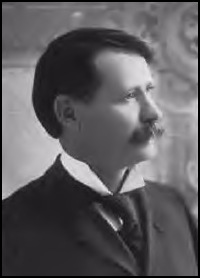 EATON, Senator William, of Sidney, Fremont
county, Iowa, was born October 9, 1849, near Denmark, in
Lee county, Iowa.
He is one of the many bright examples furnished
in American history, of men who have by sheer force of
character and dominating will power, risen above their
surroundings and advantages. He descended from Plymouth
Rock, his ancestors being the Eatons who landed with the
Pilgrim fathers on that heroic spot, in 1620. William
Eaton's father was Ansel Eaton, a native of
Massachusetts, who as early as 1838 came to Iowa and
settled in the colony in Lee county, near the old town
of Denmark. Here he lived on a farm until the spring of
1852, when he went to California, where he died in
September, 1853, and William, at the tender age of 4
years, was left to the care of a widowed mother, in very
poor circumstances financially. His mother's maiden name
was Elizabeth S.
Rice, born at Templeton, Mass., in 1827. She came with
her husband to Lee county in 1838, and died in Henry
county in 1891.
Like most of the old pioneer mothers, she was
self-sacrificing for her children and always willing to
do more than her duty, and carry more than her share of
the burdens of those early days. EATON, Senator William, of Sidney, Fremont
county, Iowa, was born October 9, 1849, near Denmark, in
Lee county, Iowa.
He is one of the many bright examples furnished
in American history, of men who have by sheer force of
character and dominating will power, risen above their
surroundings and advantages. He descended from Plymouth
Rock, his ancestors being the Eatons who landed with the
Pilgrim fathers on that heroic spot, in 1620. William
Eaton's father was Ansel Eaton, a native of
Massachusetts, who as early as 1838 came to Iowa and
settled in the colony in Lee county, near the old town
of Denmark. Here he lived on a farm until the spring of
1852, when he went to California, where he died in
September, 1853, and William, at the tender age of 4
years, was left to the care of a widowed mother, in very
poor circumstances financially. His mother's maiden name
was Elizabeth S.
Rice, born at Templeton, Mass., in 1827. She came with
her husband to Lee county in 1838, and died in Henry
county in 1891.
Like most of the old pioneer mothers, she was
self-sacrificing for her children and always willing to
do more than her duty, and carry more than her share of
the burdens of those early days.
William attended the country schools of the
period and afterwards studied at Denmark academy. He
worked for his mother, however, until he was 21 years
old, and only obtained such education as he could secure
during winter terms of school. After became of
age, he attended academy, boarding with his mother and
walking morning and evening the distance to Denmark,
three miles. This was continued till he had finished a
scientific course, graduating in June, 1872. In the
meantime he was compelled to teach school a part of
almost every year to meet academy and college expenses.
In the same way he continued with his legal education,
until he graduated from the State university at Iowa
City, in June, 1874.
He located at Sidney, in Fremont county, Iowa, in
the October following. Without friend or acquaintance,
money or experience in his profession, he set out upon
the battle of life. On such a foundation of
self-dependence and self-reliance, it is not surprising
that Mr.
Eaton has been successful. He has been one of the
leading lawyers of southwestern Iowa for twenty years.
He has prospered financially, too, the American measure
of success. He is a staunch republican and has been
active in republican work and counsels for many years.
He was appointed by Governor Gear in the fall of 1880 to
the office of district attorney of the Fifteenth
judicial district of Iowa, to fill vacancy caused by the
resignation of Maj. A. R. Anderson.
He was county attorney for Fremont county four years,
1887 to 1890. Elected state senator of the Seventh
district (Page and Fremont counties) in the fall of 1893
and re-elected in the fall of 1897. As a member of the
state senate, Mr. Eaton, as in all other relations, was
found to be fully equal to the occasion and demands of
the time. He is strong and fearless in his work and
opinions, and above all is honest and patriotic. He has
served on good committees and was rarely absent from
their meetings, and never shirked a duty or
responsibility. His record as a legislator is that of a
conservative, fair-minded man, earnestly desiring the
best legislative action. Senator Eaton's work has thus
far been characterized by independence and sagacity. He
endorsed only those policies that commended themselves
to his better judgment, regardless of the influence or "
pull " of friends or politicians.
He is a consistent member of the Methodist
Episcopal church. On August 4,1874, he was married to
Annie E. Grundy, of Christian county, 111., from which
union there was born to them a son and a daughter, Elmer
E., and Lillian Eaton.
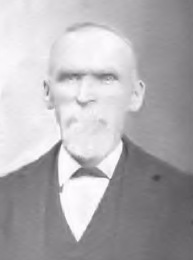 HOLMES, Samuel, of Hamburg, is a lawyer whose
professional as well as individual reputation is now
state wide, and well worthy of the proud commonwealth to
which he belongs. He was born in West Leigh near
Manchester, Eng., January 1, 1839. Both his parents were
silk weavers, and in 1841 left England for America and
settled on a farm near Hennepin, 111. In 1852, his
father, James Holmes, went overland to California,
remaining two years. Upon his return he took his family
to La Salle county, 111., where he cultivated a large
farm, twelve miles south of La Salle city. In 1863, his
mother, Hannah Mort Holmes, died. HOLMES, Samuel, of Hamburg, is a lawyer whose
professional as well as individual reputation is now
state wide, and well worthy of the proud commonwealth to
which he belongs. He was born in West Leigh near
Manchester, Eng., January 1, 1839. Both his parents were
silk weavers, and in 1841 left England for America and
settled on a farm near Hennepin, 111. In 1852, his
father, James Holmes, went overland to California,
remaining two years. Upon his return he took his family
to La Salle county, 111., where he cultivated a large
farm, twelve miles south of La Salle city. In 1863, his
mother, Hannah Mort Holmes, died.
Like many sons of pioneers, Mr. Holmes obtained
an education with difficulty. During the winter months
he attended the public schools, working on the farm the
remainder of the year. He was fond of books and of
study, and made the most of the opportunities presented
to him. He would go many to attend a debating society
and was an expert speller. After he was 2l years of age
he attended Granville academy and Wheaton college,
working at the same time in order to pay for his board,
tuition and clothing. After two years at Wheaton he
taught school in his home district. He then began to
read law in his leisure moments. In 1865, he came to
Iowa, and in the following year located permanently at
Hamburg, which was then a village of very few houses.
For two years he read law in the office of R. K.
Crandall, when he entered the law department of the
State university and graduated in 1868. He returned to
Hamburg and formed a partnership with Mr. Crandall. He
was afterwards associated in the firms of Holmes &
Simons, Dalbv A Holmes, and Holmes A. French, all
leading law firms of southwestern Iowa. During the past
eleven years he has been alone in the practice. Mr. Holmes has one
of the largest offices and one of the most complete law
libraries in that part of the state. He has been
retained as counsel in many important cases in the
district, supreme and United States courts. For twelve
years Mr. Holmes held the office of United States
commissioner, but resigned the position in order to
devote all his time to his profession. He is the author
of the well-known book, "Township Laws of Iowa" which
has run through two large editions. For ten years he was
vice-president and president of the Farmers and
Merchants bank, of Hamburg. During recent years he has
devoted some of his time to developing one of the
largest fruit farms in the state. Politically, Mr.
Holmes was an uncompromising republican until the party
took, what he considered to be, a "backward step" in
1894, on the temperance question. He was a
prohibitionist in theory, a leader in local and state
temperance organizations, and was one of the chief
factors in the re-election of Senator Clark to the state
legislature, aiding him in engineering the prohibition
law through the senate and house. Fremont being a
border county, had the reputation of being a tough
place, and "rum-ruled." By vigorous personal effort, Mr.
Holmes assisted in changing public sentiment, in
banishing the saloons from the county and making Hamburg
one of the most temperate and law-abiding, educated and
patriotic cities in Iowa. Becoming an active
prohibitionist, he was honored in 1896, by the
nomination for judge of the supreme court, and in 1897
was nominated for representative from Fremont county,
and at the prohibition state convention in 1898, he
received the nomination for attorney-general. Mr. Holmes
is imbued with the true spirit of the reformer and has
always led in educational, moral and temperance reform.
Ridicule and threats have no influence with
him.
When a young man he was a Congregationalism but
in recent years united with the Presbyterian church. He
is a ruling elder in the church to which he
belongs. He
assisted in organizing and superintending the first
permanent Sunday school in Hamburg, and has been an
active officer and teacher ever since. He has several
times been a member of the board of education and for
fifteen years a trustee of Tabor
college.
He was married in August, 1864, to Sarah B.
Hewitt. They have six children, Abraham Lincoln, William
Thomas, Mary Elizabeth, now the wife of Rev. Evore
Evans, Jesse George, Samuel Arthur and Sarah
Marcia.
Mr. Holmes is a liberal man and no
advanced course for human good has ever appealed in vain
to him. He has the loving regard of all his fellow
citizens. In a comfortable home, his children a credit
to him, a handsome competence for his old age, he is
enjoying the results of a life well spent in the service
of the Master and his fellowmen.
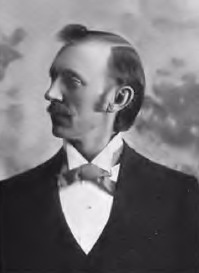 HUSSEY, John Marion, president of the Western
Normal college at Shenandoah, is one of Iowa's best
known school men; a practical educator; wide awake to
the demands of the age. He is the son of Henry H.
Hussey, a farmer and stock-raiser of comfortable means,
who is a native of North Carolina, but who moved to Ohio
and later to Illinois, finally settling in Missouri in
1859, where he still resides. He served
actively during the civil war for nearly four years.
Professor Hussey's mother, formerly Miss Emilia E.
Darnell, is a native of Indiana, and is of Irish
descent. The Hussey family was one of the very first to
settle in Massachusetts, Christopher Hussey having come
over in the "Mayflower." Many of his descendants were
Quakers, the poet Whittier being among them. Another
distinguished member of the family tree was Daniel
Webster, who descended from a niece of Christopher
Hussey. HUSSEY, John Marion, president of the Western
Normal college at Shenandoah, is one of Iowa's best
known school men; a practical educator; wide awake to
the demands of the age. He is the son of Henry H.
Hussey, a farmer and stock-raiser of comfortable means,
who is a native of North Carolina, but who moved to Ohio
and later to Illinois, finally settling in Missouri in
1859, where he still resides. He served
actively during the civil war for nearly four years.
Professor Hussey's mother, formerly Miss Emilia E.
Darnell, is a native of Indiana, and is of Irish
descent. The Hussey family was one of the very first to
settle in Massachusetts, Christopher Hussey having come
over in the "Mayflower." Many of his descendants were
Quakers, the poet Whittier being among them. Another
distinguished member of the family tree was Daniel
Webster, who descended from a niece of Christopher
Hussey.
J. M. Hussey was born September 22, 1863, at
Mount Pleasant, Mo., and was reared on a farm until he
was 17 years old.
The first school he attended was held in a
frontier log structure, very crudely equipped, both as
to teachers and furniture. The most helpful
teaching during these early years was that given him by
his mother. At 17 he entered college in a denominational
school of high rank, but upon determining to make
teaching his profession, he entered and completed normal
and scientific courses in two of the best normal schools
of Missouri. Later he completed a thorough teacher's
professional course in one of these normal schools.
While in school he was twice chosen on the anniversary
program; was president of all his classes; won
valedictorian honors on the basis of rank in two of
them, and now holds two life state teacher's
certificates, three undergraduate diplomas, and two
others conferring the degrees, M. S. and Pe. B. After
the completion of a thorough business and professional
course he began clerking in a hardware store and for the
next few years was employed as post office clerk, bank
clerk and bookkeeper, country school teacher, and
instructor in a high school. In 1886 he accepted a
position as city superintendent of the schools of King
City, Mo., and later of Ord, Neb., and still later of
Aurora, Neb., where he remained until 1892, when he
purchased a half interest in the normal college at
Fremont, Neb. In December, 1892, he sold his interest in
this institution in order to accept the presidency of
the Western Normal college at Shenandoah, and under his
business-like and careful management, his professional
skill and enthusiasm, the school has greatly improved
and grown, and is now one of the largest and best known
institutions in the west, having an enrollment of over
1,200 students annually. Professor Hussey
is especially well fitted for the work he is now doing,
having been educated in normal schools, and having had
thorough training in business, and as a teacher in all
grades of work, from the country school to the college.
He is in much demand as a popular and educational
lecturer and institute instructor, and has taught in or
conducted more than twenty different teachers'
institutes.
The professor has been a life-long republican,
though he has taken no active part in politics since
embarking in the work of an educator. He belongs to the
Masonic order, having received its highest degrees; to
Omaha temple of the Mystic Shrine, and to the Modern
Woodmen of America. He is a member of the Presbyterian
church, and an elder in that
organization.
He was married December 23, 1890, to Miss Icy May
Carson, a daughter of John H. Carson, a merchant of Ord,
Neb. Mrs.
Hussey is a lady of rare accomplishments and
talents, fitting her for the exercise of her high duties
to the students of the institution over which her
husband presides.
They have one child,
a son, John Wendell, who was born February 8,
1896.
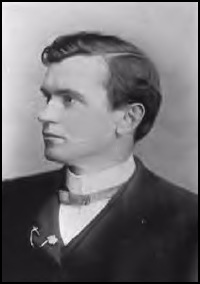 MITCHELL, William Edwin. Judge J. L.
Mitchell, well known to all Iowans by reason of his
distinction in legal circles and his gallant services as
captain of Company E, in the Twenty-ninth Iowa, once bad
a nephew to whose young mind the judge was the acme of
perfection, the ideal man. When the young man had
reached the age at which a profession was to be chosen,
he very naturally thought the profession of his uncle
good enough for him, so began the study of law. That
young man is now one of the leading lawyers of the
state, having at one time been presented by a great
political party for the position of supreme judge. MITCHELL, William Edwin. Judge J. L.
Mitchell, well known to all Iowans by reason of his
distinction in legal circles and his gallant services as
captain of Company E, in the Twenty-ninth Iowa, once bad
a nephew to whose young mind the judge was the acme of
perfection, the ideal man. When the young man had
reached the age at which a profession was to be chosen,
he very naturally thought the profession of his uncle
good enough for him, so began the study of law. That
young man is now one of the leading lawyers of the
state, having at one time been presented by a great
political party for the position of supreme judge.
William E.
Mitchell, of Sidney, was the young man thus
inspired. He was born April 23, 1860, in Hendricks
county, Ind. To a high school education was added a
course in Tabor college, during the years 1880-1. Late in the year
1881 he entered the Freshman class at Greencastle, Ind.,
and there took a. classical course in the De Paw
university, from which he graduated in 1885. He also
graduated from the law department of the same school in
1888. While
there he was a member of the Phi Delta Theta Greek
Letter society, and had the distinction of winning the
Kinnear-Monette medal, in debate.
His parents were poor people and came to Iowa in
1868, in the hope of bettering their condition. They
located on a farm near Sidney, and, as might be
expected, the boy was required to labor hard to assist
in building up the new home. He was thus engaged until
reaching his 20th year, at which time he was placed in
college.
Upon returning from school in 1885, he was
elected to the office of county superintendent of
schools of Fremont county, on the democratic ticket. In
May, 1888, he was admitted to the bar by the supreme
court of the state, since which time he has devoted
himself to practice. He is regarded as among the best
jury lawyers in western Iowa, if not in the entire
state, and has a law library excelled by but few in the
profession. He has a large practice in the supreme court
of Iowa, and the federal court at Council
Bluffs.
He was married December 18, 1889, to Miss Matilda
Engelke, a daughter of W. A. Engelke, a
prosperous farmer living near Sidney. The union has been
blessed with three children: Edwin, Erskine and Mary
Mitchell.
Mr. Mitchell is a democrat, and as
such has figured, and is now figuring, prominently in
the high circles of that party. He received the
nomination for supreme judge at the hands of the state
convention held in Dos Moines in 1894, and was defeated
by Judge Deemer, the state that year giving the
republican ticket an overwhelming plurality. He takes
great interest in the party success, and is a familiar
figure in congressional, state and national conventions.
He is pronounced in his commendation of the course of
Grover Cleveland, especially on the currency question.
He was chosen a delegate at large from Iowa, to the
national convention of national democrats at
Indianapolis, Ind., September 2 and 3, 1896, which
placed the Palmer and Buckner ticket in the field, and
during that campaign stumped the state against Bryan and
his platform. His first political speech was made for
General Hancock, during the campaign of 1880, and every
democratic candidate since that time has received his
support except Bryan, whose free silver ideas and the
Chicago platform he could not endorse. He united with
the Presbyterian church when 15 years old, and is still
a member of that church. He is superintendent of the
Sunday school of his hometown, in which he takes great
pride and interest, and all benevolent causes receive
liberal contributions at his hand. He has a beautiful
home on the best street in Sidney, where he is
surrounded by his family and his books, and with these
he is indeed one of the happiest of men.
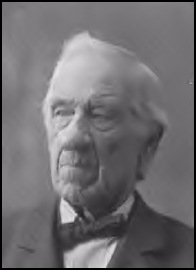 PAUL, Daniel McFarland, one of the
well-established and successful men of Thurman, was born
July 26, 1814, in Washington county, Pa. His father,
William Paul, was a farmer in that county. His mother's maiden
name was Hannah Slack. PAUL, Daniel McFarland, one of the
well-established and successful men of Thurman, was born
July 26, 1814, in Washington county, Pa. His father,
William Paul, was a farmer in that county. His mother's maiden
name was Hannah Slack.
Both father and son belonged to the whig party
until Mr. Paul, in 1856, became a devoted republican, to
which political faith he has ever since been true. He was educated
in subscription schools until he was 19 years of age.
About this time he tried selling goods and succeeded
very well. For three years he ran a flat boat on the
Ohio river from Rising Sun to New Orleans. He sold out
in 1857 and moved to West Point, now Oxford, Mo. Here he
engaged in the general merchandise business, continuing
till the fall of 1860.
On account of the war, Mr. Paul removed to
Thurman, Fremont county, then called Plum Hollow. He
again engaged in the general merchandise business,
continuing in the same until 1874, when he disposed of
the business. Mr.
Paul was justice of the peace and postmaster in
Indiana. He was also postmaster in Oxford and in Plum
Hollow, and was the first mayor of Plum Hollow. He is a
member of the Odd Fellows fraternity. He was married
January 1, 1835, to Elizabeth Walton. Eleven children
were born to them, four of whom are now living: Martha
J., born May 21, 1845; Kasiah H., born March 31, 1837;
Alice, born October 8, 1847; and Walton M., born April
13, 1861.
His has been a long life of honorable
usefulness.
The information
on Trails to the Past © Copyright may be used in personal family history research, with source citation. The pages in entirety may not be duplicated for publication in any fashion without the permission of the owner. Commercial use of any material on this site is not permitted. Please respect the wishes of those who have contributed their time and efforts to make this free site possible.~Thank you! |